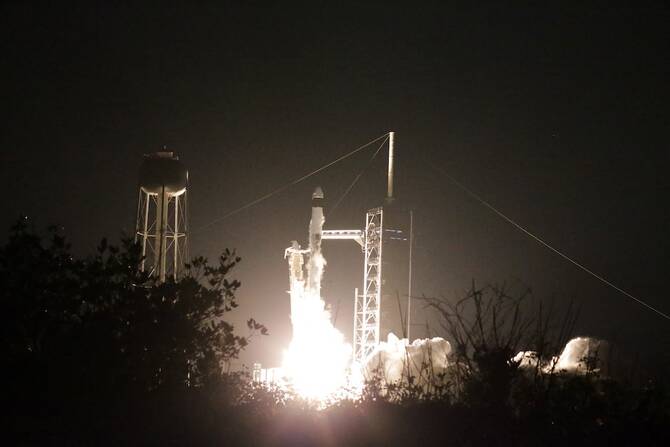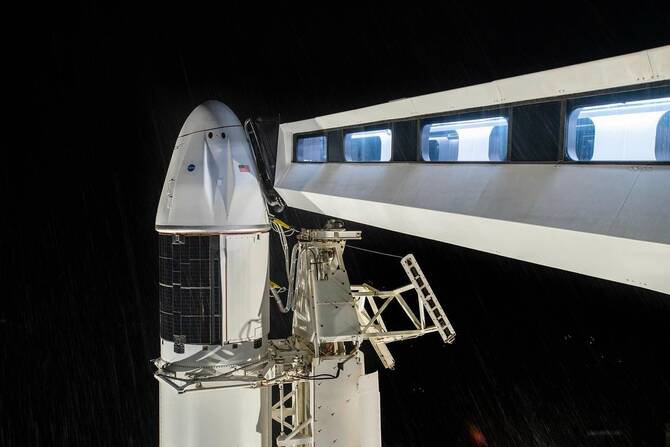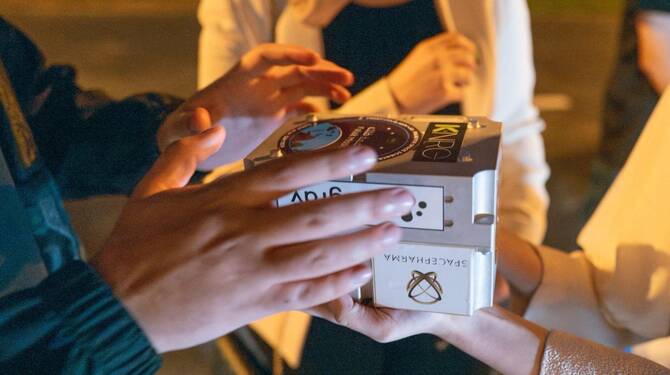RIYADH: Biological samples for a Saudi study into the effects of low gravity on the microbiome of the human eye have been launched into orbit on a SpaceX rocket.
Monday night marked a historic moment in both Saudi and global history as health-tech startup SDM and nonprofit FALAK for Space Science and Research launched the Falak Mission to explore the ocular microbiome in space aboard SpaceX’s Fram2 from Florida’s Space Coast.
“This is the first time that astronauts have gone into the polar (orbit) space, not the equatorial … this is the first time globally that any specimens have gone to the polar space (orbit) with live astronauts,” Prof. Dr. Selwa Al-Hazza, CEO and founder of SDM, told Arab News.
SpaceX’s Fram2 Falcon 9 rocket took off on March 31 at 9:47 p.m. carrying with it ocular microbiome samples.
The mission is part of global efforts to study the impact of microgravity on the ocular microbiome in space — a critical yet under-researched aspect of eye healthcare.
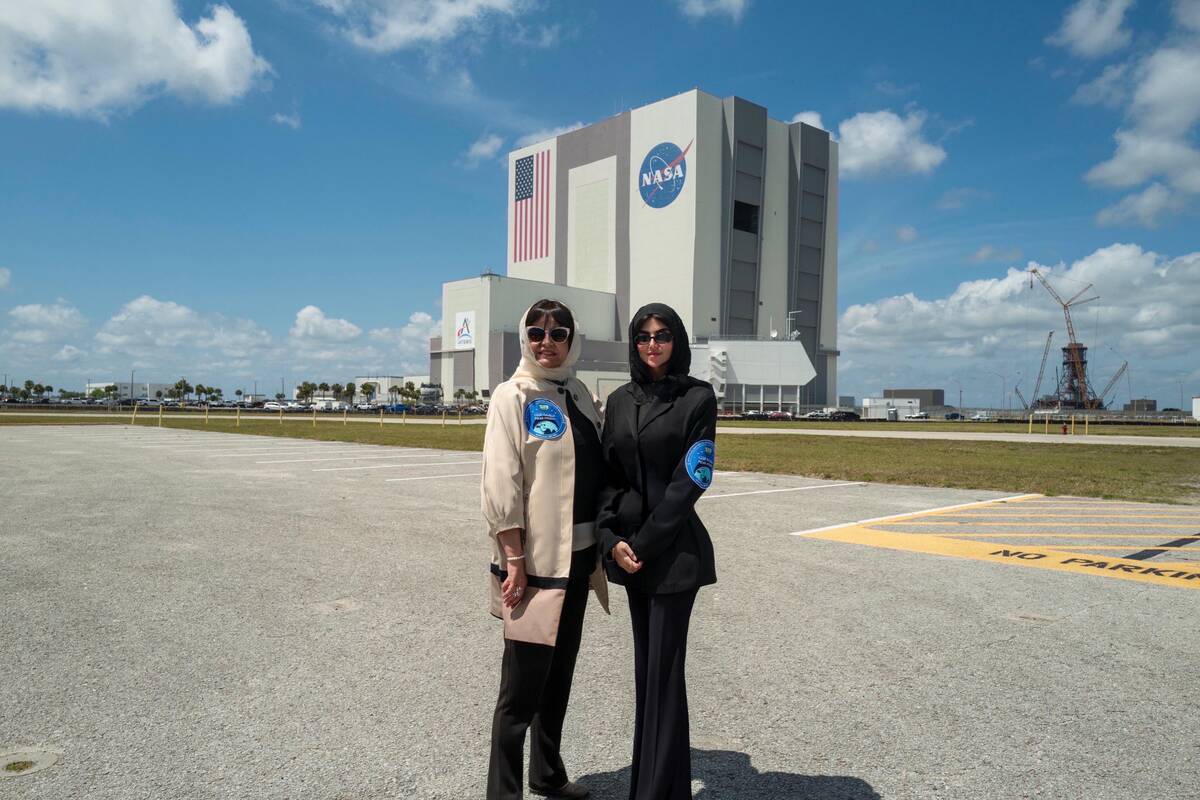
Prof. Dr. Selwa Al-Hazza (L) is the CEO and founder of SDM. (Supplied/SDM)
It will track the genetic and protein changes that may occur as a result of exposure to microgravity.
The experiment also aims to evaluate the ability of microbes to form biofilms, which may increase the risk of infection in space, as well as analyzing changes in microbial resistance to antibiotics after exposure to microgravity.
The project “will contribute to achieving qualitative progress in education and research in space and associated technologies,” Dr Ayoub Al-Subehi, CEO of Falak, told the Saudi Press Agency ahead of the launch.
Al-Hazza, who has 39 years of experience in fields spanning ophthalmology, image analysis, artificial intelligence, diabetic retinopathy, and ocular genetic diseases, underlined that this mission represents a significant step in the Kingdom’s commitment to scientific innovation and its expanding role in the global space sector.
She told Arab News: “After 39 years of being in ophthalmology, there has to be treatment for every disease. Why can’t we do something with these microbiomes?
“To spend 40 years and trying to treat patients and they do not respond, all of the pharmaceuticals and drugs, and patients going back and forth – to be able to find the mutation of what happens to the microbiomes ... What does this mean to me? To be able to treat every single (patient) ... to be able to take the microbiome and to find a solution for all of the sick patients through a simple mutation, staying away from drugs and staying away from the back and forth — that, to me, is a dream come true,” she said.
“I thought, what if we take his microbiome to the microgravity, why don’t we take it up to space, let’s see what effect the space has on the microbiome. I am sure there has to be some sort of mutation, I am sure there has to be some sort of change in its structure,” Al-Hazza added.
Over the last 18 months, Al-Hazza and her team, along with SDM co-founder Naif Al-Obaidallah, have connected with specialists at Johns Hopkins Hospital, where Al-Hazza was a professor, as well as microbiome experts in Malta and Turkiye.
Al-Hazza worked with these specialists who have knowledge and expertise in the sector to explore medical solutions in space.
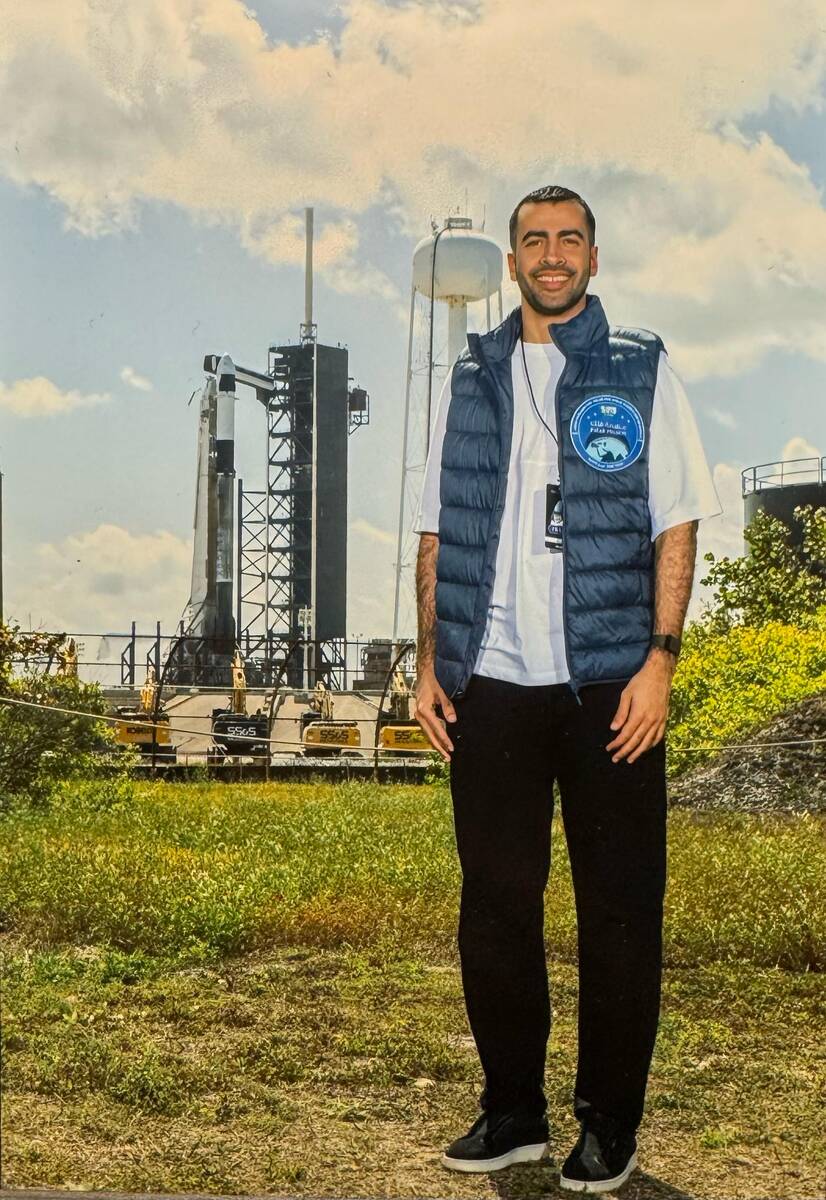
SDM co-founder Naif Obaidallah. (Supplied/SDM)
“With my 39 years of expertise in ophthalmology, we put our minds together we got the mission, we saw it last night.”
Al-Hazza shared the sense of pride she felt as the SDM team, in partnership with FALAK, carried the Saudi flag representing an important step in the Kingdom’s commitment to innovate and enhance its growing role in the global space sector.
She underlined that the mission had the support of King Abdulaziz City for Science and Technology, at which she is an adviser, as well as the Saudi Space Agency and Communications, Space and Technology Commission.
The study is part of the Fram2 mission, which was launched from the Kennedy Space Center, has a crew of four and is the first human spaceflight to follow a polar orbit.
The Falcon 9 rocket is expected to land on April 3 with a specific time yet to be announced.


